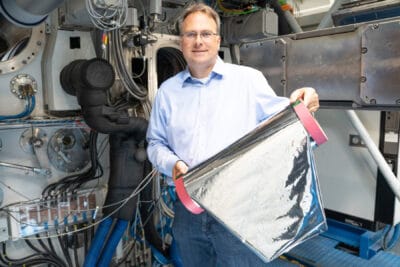Fresh capital for the BATTERY 2030+ research initiative
The European battery research initiative BATTERY 2030+ will receive 150 million euros from the EU’s Horizon Europe funding framework programme. The money will be used to launch new projects to promote sustainable solutions in battery science and technology.
According to a statement from Sweden’s Uppsala University, which is coordinating BATTERY 2030+, six new projects called Phoenix, Salamander, Healingbat, Opera, Opincharge and Ultrabat are initially planned with the budget. The focus of the first three projects mentioned will be on sensors and mechanisms for self-healing, while the last three will focus on electrochemical interfaces.
Another ten projects are scheduled to start in 2024 and nine additional projects in 2025. Some of these will cover more applied research areas such as production and recycling, while others will focus more on data science.
“The ultimate goal is to better understand the dynamic processes within the battery to further advance technological growth in this vital field. EU’s commitment to sustainable energy solutions is evident in Horizon Europe’s continued support of these trailblazing projects,” says Professor Kristina Edström from Uppsala University.
BATTERY 2030+ was launched in March 2019 and brings together stakeholders from both scientific and industrial battery research and technology. The core group comprises 17 organisations from nine European countries, coordinated by Kristina Edström, Professor of Inorganic Chemistry at Uppsala University. In April 2020, the Group presented the long-term roadmap for the development of sustainable battery technologies.
In September 2020, seven projects called Big-MapP, Instabat, Sensibat, Spartacus, Bat4Ever, Hidden and Battery 2030Plus had started with a total budget of 40.5 million euros from the Horizon 2020 research and innovation programme. They are in three different areas: first, in the development of a European infrastructure platform for large-scale calculations and experimental studies; second, in the development of sensors that examine the state of the battery in real time; and third, in the development of components that extend service life and improve safety.





0 Comments